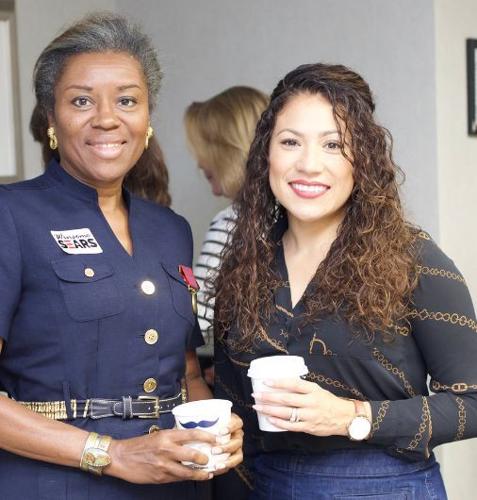For the last two decades, the legacy media has been feeling their weakness. No longer able to drive a narrative, they now are desperately seeking to regain the status of objective without any real pretense to objectivity.
Now that Republicans are building parallel institutions, it should shock no one that Republican candidates such as Yesli Vega in Virginia’s 7th District are seeking either friendlier venues or neutral ones.
The editorial staff at the Fredericksburg Free Lance-Star bemoans this fact without really driving at the core of the problem:
Debate negotiations are difficult because both parties want every advantage when the lights go on. That’s understandable. Spanberger is naturally careful about debating at an event when right-leaning media control the delivery—conservative Sinclair Media-owned ABC7 looks to be the broadcaster for the PWC100 debate. Similarly, Vega is naturally concerned about debating in environments where moderate and more-progressive organizations are involved.
Sponsors for the UMW debate, according to UMW Professor Stephen Farnsworth, would have been UMW Student Government, the area Chamber of Commerce, The Free Lance–Star, the area League of Women Voters, and Virginia Public Media. Some of these may be less conservative than Vega would like, but none could be branded as blatantly anti-Republican.
One truly hates to point out the obvious, but all of them are blatantly anti-Republican. More to the point, they are at the very least hostile to conservatives and have been for decades or more.
Obviously, exceptions can only exist in the presence of a rule.
Dr. Farnsworth, though left-leaning, is a fair man. Marty Ryall with the Free Lance-Star is indeed a fair and open-minded soul whose commitment to restoring the glory days of the opinion pages is more than just notable — it might even be termed heroic.
Yet the colloquial terms for the rest — Chambercrats, the League of Women Vipers, the student body of any college campus, National Public Radio? — are emblematic not of conservative attempts to steer clear, but of liberal efforts ensuring conservatives may by all means use and attend these platforms, yet under no conditions may they ever dare be actually represented by these platforms.
Few readers of TRS need these reminders. Few readers of other conservative-leaning outlets require these reminders, precisely because we are instructed in these lessons daily. Few liberals seem to get the point, even when their own progressive base mentions the very same problem from the left.
Of course, this does not confer the liberal the position of moderate simply because they find themselves in the middle of a self-created pincer. Rather it should confer their position another title: wrong.
That conservatives no longer trust them to offer them a fair hearing may come as a shock and surprise to liberal-controlled institutions from education to media to academia. Yet one might encourage them to look around and ask where the intellectual diversity and tolerance for opinion exists within their own institutions.
Until then, Republican campaigns are going to continue steer their candidates away from what they rightly perceive is an ambush.
While institutions deserve their place in the sun, it is perhaps high time that they realize that half of their public — and certainly more so in the Fredericksburg region where conservatives and Republicans predominate the suburban landscape — simply doesn’t trust them to be honest or effective arbiters of what “is” in the world (heavy emphasis on “is”).
After all, why would they given the last two decades? More to the point, even if there are liberals of good will, there is the small matter of putting back the public trust that has been stripped away by their predecessors in pursuit of a monoculture.
In the meantime, this should be the meta question at stake:
Again, Jennings: “I’m a Republican communications guy and engage with the traditional media. … We have to have a trusted press. … It’s necessary to democracy.”
Democracy is a funny thing, because for it to work it really does requre the entire demos to touch the wheel, not just the politically popular half and certainly not the fraction popular with bureaucrats.
That one half of the people are effectively not trusted by the institutions means that democracy is being failed, not by those who are being excluded, but by those who are defining the terms. Progressives and conservatives share the same complaint after all, and that — perhaps more than anything — should bother self-declared liberal defenders of the so-called demoskratia.
